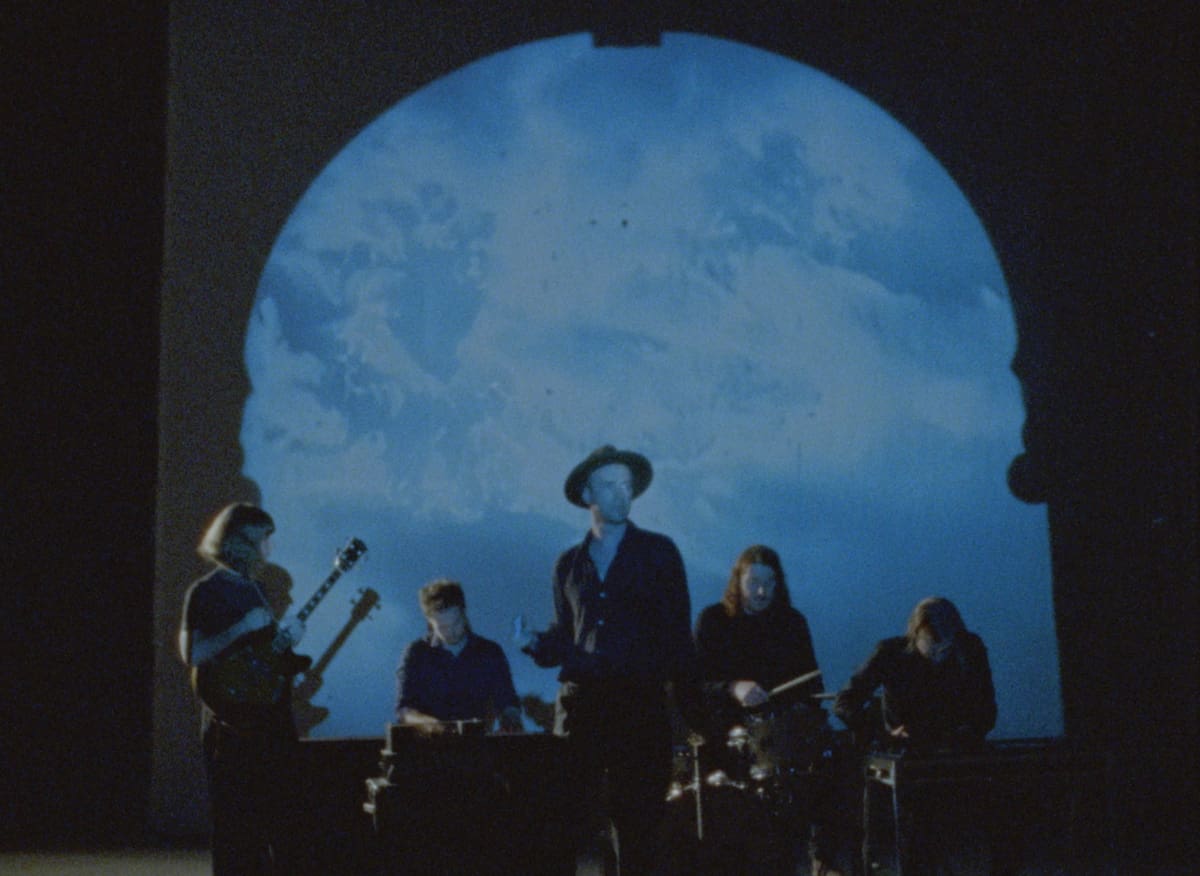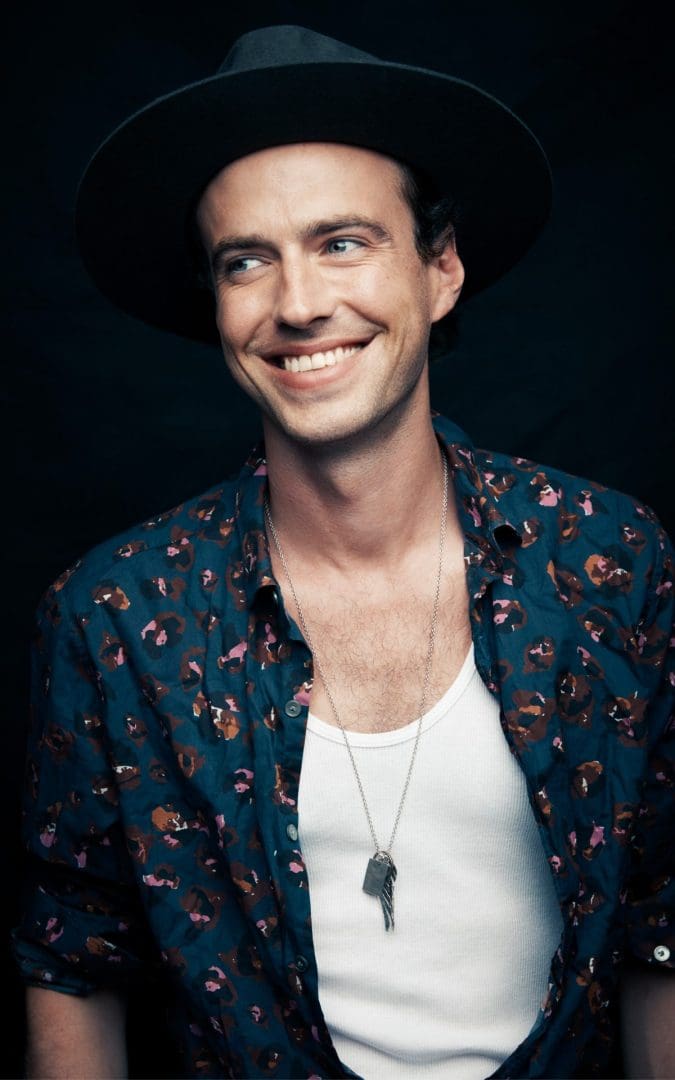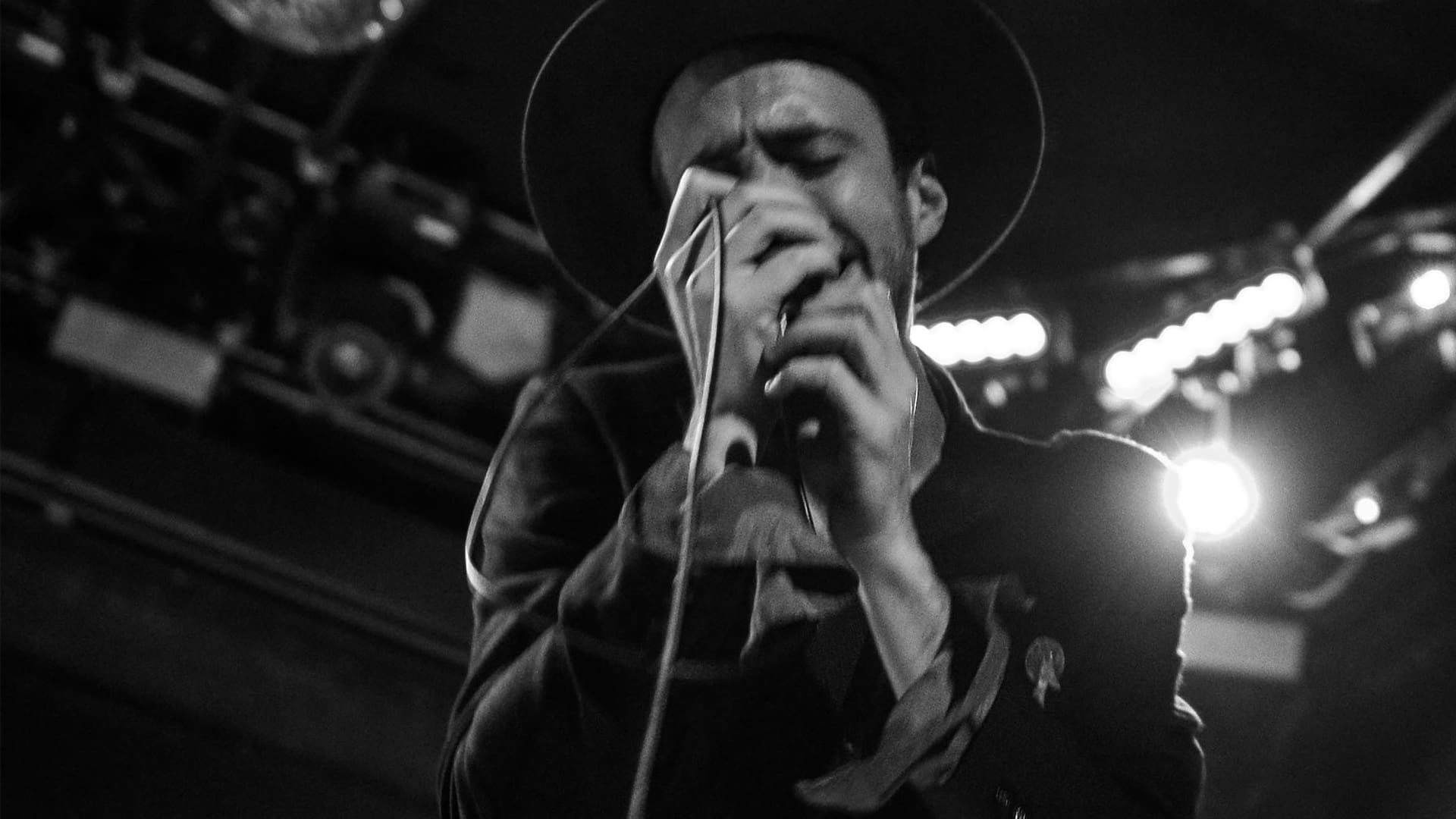And Out of the Void Came Finn Andrews
Songwriting is such a mysterious process. It can evoke a mixed bag of emotions for any artist. It can induce feelings of loneliness, happiness, sadness and hostility. It can evoke joy, wonder, hope and love. To look inside the void and find oneself once again is—to put oneself ‘on-the-line’—is such a unique experience for the musician and their audience. For London-born Auckland-living musician (and frontman of indie-rock band, The Veils), Finn Andrews, the act of finding oneself in between lyrics adds to the mystery of it all, yet creates utterly breath-taking music.
But it’s just another day at the office for Finn. Born in the northwest suburb of London, Kentish Town, Finn spent his formidable childhood years between the London and Auckland, New Zealand. His mum was an English and Sociology lecturer at university and his dad, Barry—former member of the English rock-band, XTC—both valued expression through art and music. Being the son of a rock-star certainly had its perks in Finn’s formative years—he was able to add piano and guitar playing to his repertoire early in his life. As a student of Takapuna Grammar School, he grew creatively and met Sophia Burns who would later become the bass-player of The Veils. He was also inspired fully by the works of songwriters, such as Bob Dylan, Leonard Cohen, and Tom Waits.
At age 16, he headed back to London to pursue a career in music, and formed The Veils with guitarist Oliver Drake, bass player Adam Kinsella and drummer Ben Woollacott. After they released their debut album, The Runaway Found, they hit the ground running. They have since had five successful albums, and have a massive following in the UK and Europe, have been invited to appear on several notable soundtracks, like David Lynch’s Twin Peaks and Tim Burton’s Frankenweenie. In 2019, Finn decided to forge his own path by releasing his first solo album, One Piece at a Time, with Nettwerk Music, to much acclaim. But it’s this month that The Veils are returning with Finn’s signature songwriting and unique sound with …And Out of the Void Came Love, which is set to excite and thrill fans. M2 got to sit down with Finn and talk about inspirations, songwriting and The Veil’s upcoming album.
How did you first catch the music bug?
It started probably around the time we moved to New Zealand when I was 12. We moved back and forth from New Zealand a lot when I was younger. My dad was a musician as well. From the beginning, I think music was there to communicate with my dad. I think when we left him, I almost immediately started learning instruments.
When he was around when I was younger, I didn’t have much interest in it at all. In fact, I grew up around a lot of musicians who put me off the whole enterprise, really. All these very unwell-looking people walking around. They didn’t really sell the lifestyle.
When I got a bit older, music quickly just took over everything really. I lost interest in school and music became the centre point of my day.
What lessons did you learn back then that you still use now?
It’s been a slow learning process, the whole music thing. When I started, I was pretty terrified of the whole thing. I wasn’t a natural performer and I couldn’t really sing for a long time.
I certainly wasn’t one of those people that could just do it. One of those very enviable people that can just open their mouths and sing to the radio, and their voice is beautiful. It took me years and years to feel even remotely confident with my voice. I was so overwhelmed with everything in the beginning.
You’re still obviously learning all the time. That’s what keeps it so mysterious and interesting, how much of it still is pretty unknown to me. You’re still just getting to know it a bit better every day.

What are you inspired by?
It certainly started with a lot of poetry. I think of songwriting as being built around the words. I’ve never really considered myself a musician. I like to surround myself with musicians to make up for what I lack in that area. But I always felt like words were where my interests lay, and where I enjoyed myself, and felt I’m the most free.
Music has always felt uphill to me. It’s felt like I don’t really know what I’m doing. I think I just learned the guitar as a way to sort of sing in time. A lot of my influences in the beginning were a lot of poets. I grew up rather predictably reading a lot of Sylvia Plath and Hughes, and a lot of the Irish poets. I then matured into the musicians who were poets as well; Yolanda, Cohen, and Dylan. They were the early influences. I suppose they continued to be the sort of the people I compare myself unfavourably to the most.
Your latest album, …And Out Of The Void Came Love, is coming out March 3. What can listeners expect from the latest album?
It was obviously written over quite a long period of time, with a lot less touring than I’m usually doing. The whole process happened throughout the pandemic as well and through lockdowns. There was a lot of material to go through. There was a point where I was flirting with the idea of it being a triple album, until someone thankfully talked me out of that.
After all of the time spent indoors, and all of that time feeling like life had really just died away, I felt really determined to make something that felt very full of life and very unbound creatively. I hope it feels like that.
It’s quite a long album. It’s got two halves, really. You could see it as one album in two halves or two albums that are sort of conjoined. I’m still making sense of it. When my partner got pregnant, we were in the middle of that lockdown world. I think a lot of the songs were thinking about the big stuff in life, death and everything in between. A big record with a lot of big themes running through it.
Creating such a big album must have come with its challenges. How do you (as a creative) tackle those challenges?
The challenges have always been the same from the beginning, even though the industry’s changed around us a lot since. I got signed and was fortunate enough to start making albums so young.
I’ve been making records through quite a few dramatic changes in the industry. When we first put our albums out, it was almost a different world where there was quite a lot of money being spent on signing bands and giving them money to make their albums. As we’ve gone along, every album’s gotten harder and harder to find the money to make, which is a boring reality.
That’s the hardest part probably, every time you gotta go back to the beginning and convince someone to give you the money to make this thing. That’s never an easy challenge and can sometimes weigh you down. I find that one especially hard.
All the other challenges are in your own head. Spending so much time in your own company, trying to make things out of your own. Interior life can sometimes present some very real challenges that I certainly haven’t learned how to deal with.
I only moved back to New Zealand about five years ago, and I was in London for about 15 years before that. When I lived in London every day, I never had hobbies, every day I’d wake up and go to my studio office in my house. I’d smoke a lot of cigarettes and it wasn’t very good for me. Since I’ve moved back here and I’ve stopped smoking and I go for more walks, I’ve found that’s been better for my songwriting as well. And it’s got me a little bit out of this sort of self-flagellating pattern.
The Veils also have a tour planned…
Yes, that’s happening quite soon now. It’s come around very quickly. I believe it starts in mid-March, so just after the album comes out. It’s zigzagging its way down the country.
It’s gonna be a bit of an amalgamation. It’s gonna be a pretty big, bombastic affair. We’ve done one tour—we did a tour in the middle of all the lockdowns when there was that little window where people were living normally again. We haven’t done a tour as The Veil since then.
It’s always exciting when you’ve been working on a new album to suddenly get to take that on the road. Particularly this one, because it’s had such a long buildup.

When we were all in lockdown from Covid, did you think that had an effect on your creativity?
I found those lockdowns, particularly the big, long one, very psychologically challenging. I think it was quite depressing, just to feel like you were watching the world. It was a time where a lot of people were dying because of the virus.
I was so far from having lived in England for so long, and England was having such a terrible time. My father was over there and my sister and a lot of friends obviously, and throughout Europe and I had a lot of friends in Italy where I lived for a while, which was also having such a terrible time. I found it very difficult feeling so separate from everyone and knowing that everyone was suffering.
Life sucked out every trace of colour. I think it made me run to my songwriting, as I often do when I feel like my life needs some colour. I think I felt incredibly grateful for my songwriting, for having that place to run to when it felt like that. I really did think a lot about.
I had some friends who were going through it completely alone as well, without a partner and without anything like that to occupy their time, and I think that probably was a lot more extreme for them. I guess that’s where it probably came from originally, isn’t it? It certainly was for me with quite a explosive, colourful childhood. It was always somewhere to run to when everything else felt a bit scary. So it continues to serve that purpose. It was a good reminder of what a primal desire that is—a need rather than a want.
What for you would you say has been your biggest achievement?
I just became a father. I’m glad that I got to the point where I could be a dad, and I’m glad I didn’t do it any younger. I felt proud of myself. It felt like an achievement that I had a child at the perfect time in my life. That’s a bit of a sappy answer, but I think that is the thing I feel proudest of actually.
Stuff with my work and everything, any achievement in that has always felt very temporary. But this, I felt proud to have, she feels like the best thing I’ve done by a long way.
What do you have planned for the future? What do you have coming up?
Things that seem so clear on the horizon now will be the New Zealand tour, obviously, and then we’re announcing a European tour, which will be amazing.
I haven’t seen my father in four years now, so we’re going over there and I’m bringing the baby and my partner and then doing a tour and going back to London. Staying in my old flat, but this time with a baby…it’s going to be strange. You monkey-swing from just one thing to the next. Those are the only vines hanging down currently. We’ll get to the middle of the year and then see, I suppose.
What is your definition of success?
I went for dinner at one of my dearest friends, who’s back in New Zealand at the moment. He lives in London, usually. We went for dinner at his father’s house just around the corner from where I live. His father’s in his 80’s and he’s got this really close group of friends.
At this dinner party, we sat there listening to all these old boys sharing stories from their youth. They still had this just really profound sense of comradery between them, filled with humour and love. I thought that that seemed like a successful life to me, to end up at that point, surrounded by long-term, deep friendships, and love in whatever form.

